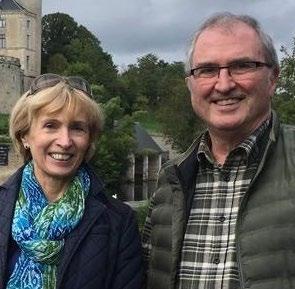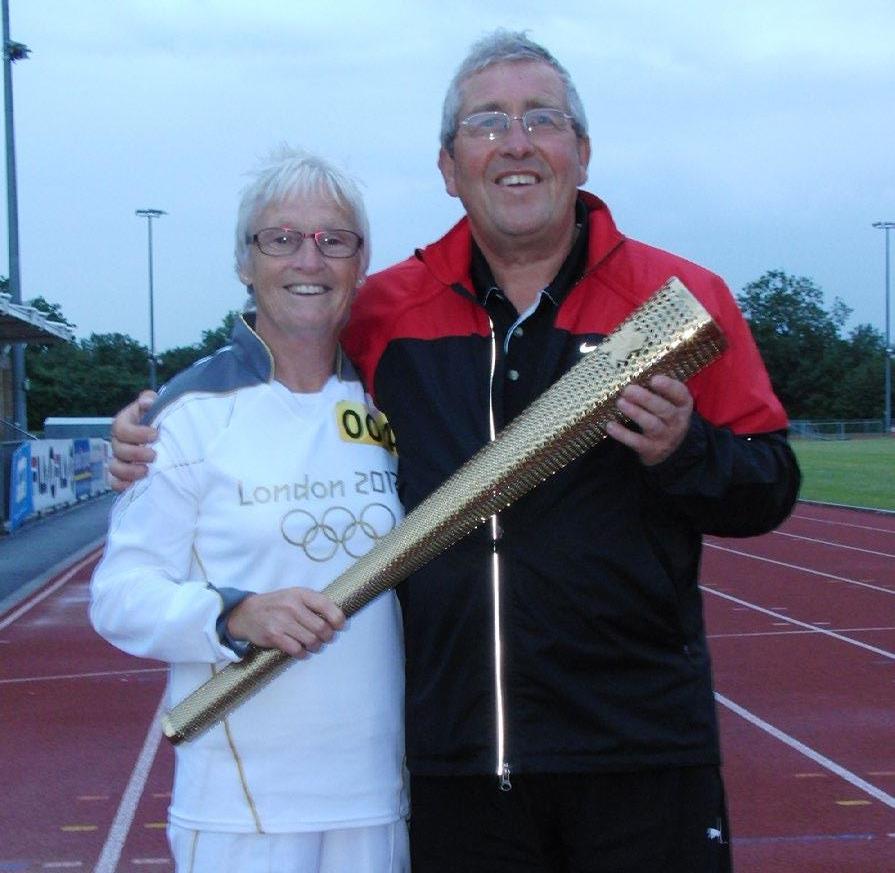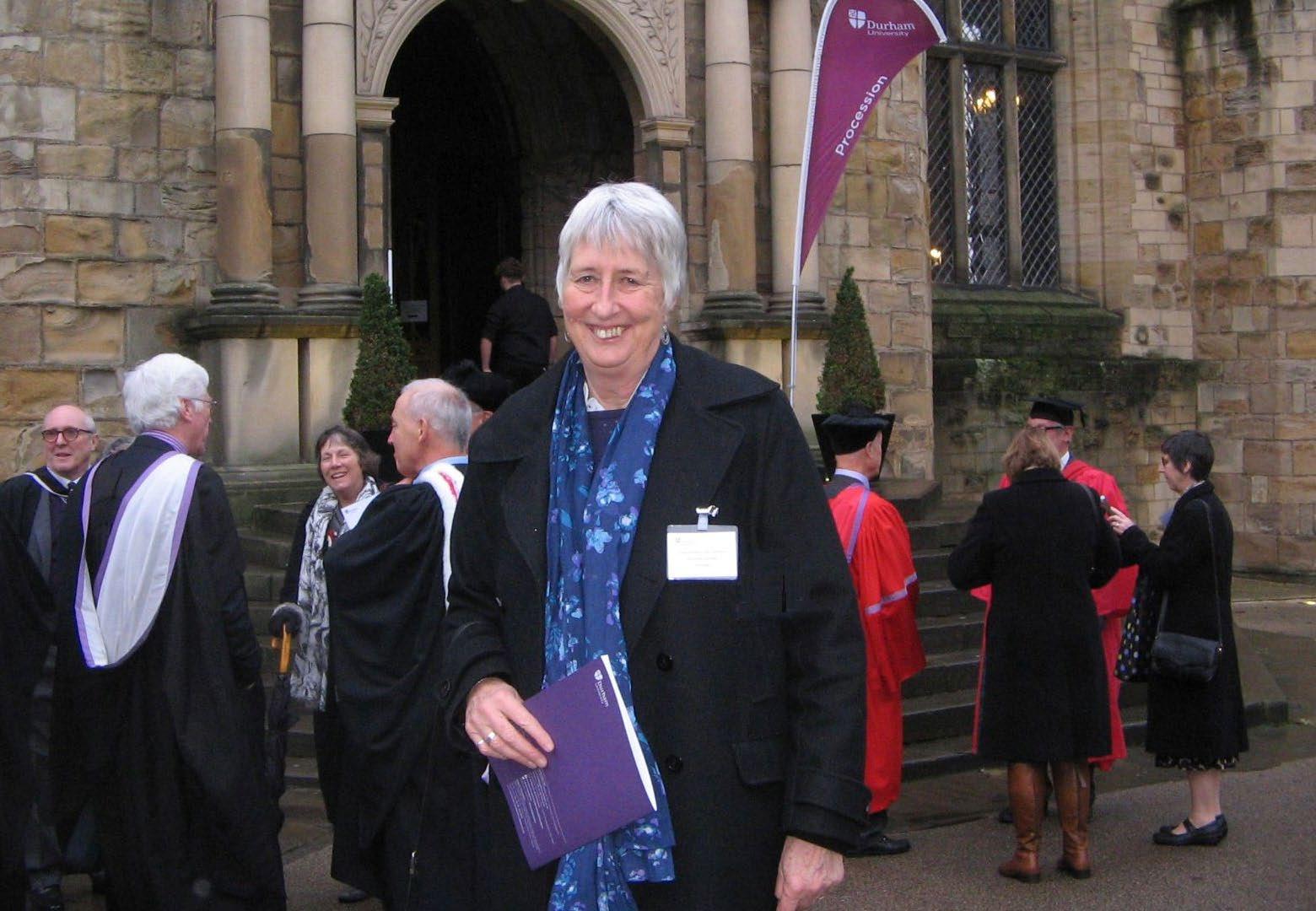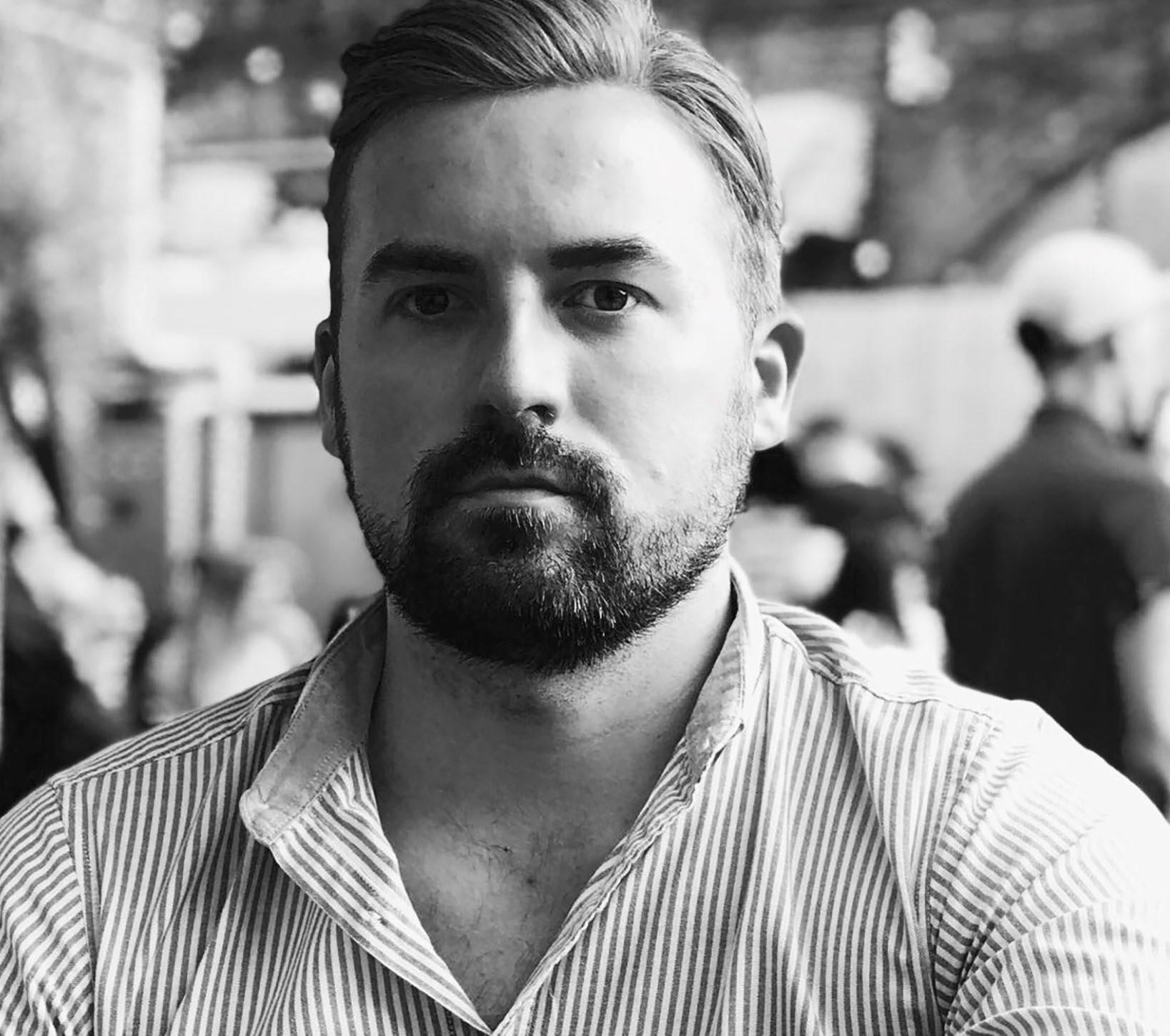
14 minute read
Our Durham Stories From the class of 1970
Our Durham Stories
Class of ’70

David Breeze
University College
The interviews at Castle and the History Department in 1961 clinched it for me; I was captivated by Durham. When I arrived in September 1962, my first tutor was Eric Birley, Professor of RomanoBritish History and Archaeology. Towards the end of term, he mentioned that the University ran an archaeological training excavation. I duly attended that, and I was hooked. I not only started the Roman Britain special subject the following year, but I embarked on learning how to dig. In those days, a dissertation was part of the special subject and I found that I enjoyed research, so I stayed on to undertake my PhD in Durham, graduating in 1970. On the completion of that, I was offered a post as an assistant inspector of ancient monuments in the Ministry of Public Building and Works, and there I stayed for the next 40 years, witnessing many changes of departmental titles and climbing up the ladder, until I became Chief Inspector of Ancient Monuments for Scotland in 1989. At the age of 60, I moved sideways and spent the next few years preparing the nomination of the Antonine Wall as a World Heritage Site, successfully achieved in 2008, and helping to create the first transnational, phased, serial World Heritage Site (wonderful UNESCO jargon), Frontiers of the Roman Empire. Looking back, it all seems so serendipitous. If Eric had not been my tutor, I would not have taken his special subject nor attended an excavation – and everything else
Hatfielders Crashing Trevs Do
flowed from that. And ‘that’ included my wife, who I met on the university training excavation in 1966, started courting in 1968 and married in 1972. Fortunately, Pamela (St Aidan’s College, 1968-71) did not stay in archaeology, but without her support I would certainly not have achieved so much.
Lesley Ingleson (née Read)
Trevelyan College

Lesley Ingleson
in 1970
I graduated from Trevelyan College, after studying Mathematics, and married Stuart Ingleson that summer. He was also at Durham (Bede College, 1965- 70) and studied Geography. We are still happily married, and so will be celebrating our 50th wedding anniversary in 2020 along with all the family. We have two sons and seven grandchildren – amazing!



I had always wanted to do Computing, so I applied to Fujitsu/ICL as a graduate trainee in application programming. Computing was a good career choice for me and very rewarding. I had quite a number of jobs, following Stuart around the country as he got promoted. Ultimately, I had various IT director roles, but my most exciting and challenging was when I was given the opportunity to be managing director of a European travel company. Now retired, we are very fortunate to live in the Trough of Bowland, an Area of Outstanding Natural Beauty in the northwest of England. We enjoy spending time with the family, travelling widely and getting involved with local activities.
Ron Emerson
Durham Business School
Coming to the new fledgling Durham Business School, after reading Engineering at Manchester, was a turning point in my life. I went on to spend a good deal of time in banking, eventually being global head of wholesale banking for Standard Chartered, then took a sabbatical at Oxford and moved on in other directions with a plural career. This recently led to being the founding chairman of the UK government’s economic development bank, The British Business Bank, which specialises in supporting small and medium-sized enterprises, the backbone of the UK economy. But Standard Chartered was also a turning point as, when working for them in Malaysia, I met my wife Angie, who was visiting with Durham University for an educational fair. Angie looked after international students at Durham, and we discovered that we were both born in Hartlepool. The hand of fate descended, and we were married a couple of years later – thanks to Durham being smart enough to visit Malaysia! I should say that Angie can’t wait to visit the hotel where we are staying, as it’s the old Shire Hall, where she had her office. Whilst at DUBS, I and four others founded the Grad Soc boat club, quite something given that none of us had ever rowed before. We rowed at Hexham and Durham Regattas. With the latter, we had become quite ambitious and entered an eight in the novice category. There were only three entrants, and we had a bye to the final. When we saw that we would be rowing against a crew of 16-year-olds, the celebratory party was already organised. The trouble was, this was Durham School’s European champions. We only lost by three lengths. Happy days.
Angela Braga (née Hall)
St Mary’s College
The view from Durham station is surely one of the finest in the world, and arriving there for my interview as a nervous 17-year-old, I was blown away. I knew I had found my place. I loved it all: the trunks being sent on ahead by rail two weeks before term; the cosy girls’ boarding school environment of Mary’s, with doors locked at 12 by Laurie the caretaker – all men, of course, to be out by then; the novelty of being called ‘Miss Hall’ by eminent professors in tutorial sessions; the romance of Prebends Bridge, with the Cathedral looming massively overhead; the constant dressing-up for formals, informals, sherry parties (would any modern student regard six sherry glasses as being essential uni equipment?); the gowns; the Latin grace, which as Deputy Senior Woman in my final year I was often responsible for saying; the police box in the market place, with the

white-gloved policeman directing the traffic; the modern concrete span of Kingsgate and Dunelm House contrasting with the wonderful old architecture of Palace Green and Old Elvet. All seemed set fair, but a few weeks into term my life was turned upside down. My father, on the family’s first weekend visit to Durham, suffered a stroke and died in Dryburn Hospital. It was devastating. But although I had been a student for only a month or so, the College community was incredibly supportive. In particular, Mary Holdsworth, then Principal of Mary’s, took me under her wing and kept a close eye on me, until I found my feet again. I will always be grateful. As one door closes, another opens. The week after my Dad’s death, I met my future husband, Paul, a Hatfield Modern Languages student just back from his year abroad. Reader, I married him, during the summer of my graduation year, and thus we will be celebrating our Golden Wedding in 2020. I want to end this ramble by remembering three much-loved friends, all St Mary’s and all reading English, who are no longer with us: Tessa Cullen (née Wall); Liz Foster (née Whitaker); and Mary Wise (née Smith). They too belong to the class of 1970.
Angela and Paul Braga
in 1970

Philip Sergeant


Philip Sergeant
Graduating from University College Durham in 1970, having studied Geography, was a very proud moment for me. I had some very important family alongside me for the great day. As the youngest of six children, I was fortunate to have with me three Durham graduates: my father, who graduated in the 1930s, having studied Maths at Hatfield College; my sister Pat, who graduated with Honours from King’s College in 1961 studying Classics; and my brother Rick, who also studied at King’s College, gaining an Honours degree in French and Spanish. (King’s College is now Newcastle University.) Last but not least was my wife-to-be, Sylvia, who was already teaching when I graduated. Also, there was my junior school teacher and her husband, my senior school Maths teacher, whose son John Holme gained a First in Geography that year. To finish off, I have returned to Durham again for my daughter Elizabeth’s graduation in the Castle with a 2:1 Honours in Biology from Trevelyan. I have been back since and stayed in the Castle. I regard Durham as the place that helped define my later life.
Margaret Elphinstone and her parents
Hatfielders graduating
in 1970 At my interview for Durham, I was asked about Browning, whose poems we were studying for A-level. I said he was all very well, but Elizabeth Barrett Browning wrote better sonnets and always had to look up the trains when he was being hopeless. I wonder if that was why I was offered a place. I fell in love with Durham when I walked across Prebends Bridge for the first time, pausing to read the Scott quatrain, now forever engraved upon my memory, and up to Palace Green. Later, I did that walk almost every day, going from Mary’s up to the library. It was my preferred way of getting to the English Department, then housed uninspiringly in Elvet Riverside. In some ways, Durham abetted me, in never quite entering the modern world, though in 1968 I did take part in my first political protests, a lifelong habit into which I have recently relapsed. The combination of the ever-present past in Durham and ancient Northumbria, and the chance to read widely and avidly for three years, is what truly educated me. Highlights of formal study were Professor Dorsch’s Shakespeare class, a special option on W.B. Yeats, and yes, all that Anglo-Saxon and Middle English, although I didn’t appreciate it at the time. Some years later, I became a writer myself. My earliest novels are set in a possible future

which now appears alarmingly prophetic. Most of my work has been historical. Eight years in Shetland were the catalyst for two Norse novels, a spell in Michigan produced a novel set in the 1812 war, and a passion for islands, lighthouses and Atlantic history informed the rest. My latest novel, set on the Argyll coast 8,000 years ago, has brought me circling back to the environmental themes of the early books. There has always been the day job too: gardener, home help, library assistant, academic. I ended up as Professor of Writing at the University of Strathclyde in Glasgow, but since I retired from paid work, it’s back to gardening, which (unlike academia, sad to say) gives me time to think, and to cultivate some new varieties of writing. All this aside, the central theme of the past 50 years has been my family and my friends. I look at the photo of myself at my Graduation in 1970, with my parents standing one on either side of me. At 21, that seemed like a steady state: mortality was still merely a concept. If anyone takes a photo in 2020, it will be of myself and my partner Mike, but implicit in that would be our respective descendants, all 13 of them. One thing I have learned in 50 years is that while the personnel change almost entirely, family and friends are the constant, sine qua non. So many happy memories and celebrations!
Our Alumni and Supporter Engagement Team are thrilled to have been awarded the Council for the Advancement and Support of Education (CASE) Gold Award for the Class of 1970 50th Anniversary event held in January 2020.
Click to view.
My
Durham Story

Alumna Julie Stobbs (Ecology, Graduate Society, 1969-70) looks back at her time at Durham and the influence it has had on her life and her career in nature conservation.
I was delighted to receive an invitation from the University’s Alumni Office to attend the Winter Congregation, in order to celebrate the golden anniversary of my graduation in 1970. Living in West Rainton, only five miles from the City of Durham, and being free on 9 January, there was every reason why I decided to attend. There were only 17 “golden oldies” there, none of whom I had known previously, but it was a most enjoyable afternoon and quite moving as we processed down the nave of the Cathedral to wonderful music following Chancellor Sir Thomas Allen’s excellent speech. Originally from Birmingham, I attended the Mount School, York, and then went on to Cambridgeshire College of Arts and Technology, as it was then called, to do an external London degree. My interest in ecology had grown and, on graduation, I applied to Durham to do the MSc Ecology course, which that year was run by the late David Bellamy. As he had done an external London degree himself, and recognised that it wasn’t the easiest course to do (as your examiners were unknown to you and there was therefore no opportunity for ‘question spotting’), he readily accepted me. That was in 1969 and, apart from a year working for the Nature Conservancy in Bangor, North Wales, I have been in the North East ever since. When I returned to Durham from Bangor, it was David Bellamy who told me about an advertised position working for the Horticultural Officer at the University on the technical development of the new Botanic Garden. My application was successful and I stayed for two-and-a-half years. Whilst there, I got involved as a volunteer with Durham Wildlife Trust, and my application for the first paid post with that organisation was successful. I stayed there for 16 years, leaving in 1990, by which time my title was Conservation Director. There is not space to enumerate here the many and varied tasks that I had to undertake, but on the administrative side I learned a great deal from Dame Enid Russell-Smith, who was Chair for the first three years of my employment. Previously, she had been
Principal of St Aidan’s College, as some older alumni may remember.
David Bellamy was a fantastic ambassador for the cause of nature conservation throughout my employment with the
Durham Wildlife Trust, and I have many fond memories of working with him on different projects. His imaginative ideas included the
Country and Forest Workshops, which we ran jointly with the Forestry Commission at
Hamsterley Forest. Visitors could try their hands at all sorts of activities, and David’s own role was to run nature trails for children in the Bedburn Beck.
In 1985, the Trust was fortunate to be selected as one of 12 county trusts to host a talk by Sir David Attenborough. This was held at the Sunderland Empire Theatre on
Bonfire Night, and David Attenborough was introduced by his colleague David Bellamy.
As well as organising the arrangements for the day, I was privileged to act as David
Attenborough’s driver. My job was certainly diverse.
In 1991, I commenced work with Durham County Council, leaving in 2005, by which time I had been promoted to the post of County Ecologist. As with my employment with the Trust, it was fantastically busy but always interesting, and I felt worthwhile in espousing the cause of nature conservation, in which I am a passionate believer. From 2005, the only paid work that I have done has been on a freelance basis, mainly consisting of undertaking botanical surveys. Coming from a sporty family (my mother taught PE and my father, who was 6’7” tall, played badminton until he was 85), sport has always been important to me, particularly tennis, which I still play on a restricted basis. I remember playing tennis for the University while undertaking my MSc, when we reached the semi-finals of the Women’s Inter-Varsity Athletic Board tournament, which we played, and lost, at Keele University. In later years, I was a member of the Staff Badminton Club at the University, for whom I also played in matches. Being 6’2” myself, there are some situations where height can be an advantage! My other main interest is music, both singing and instrumental. Way back I have good memories of singing in Durham University Choral Society, when the conductor was Brian Primmer. Later on, I sang in other choirs, including the Durham Singers, and my husband and I met through our early music interests of playing recorders and viols. Viol playing is a slightly specialised interest, and during our travels we have had the pleasure of playing in Canada, South Africa, Australia and New Zealand. I once wrote an article for The Viol magazine on the pleasures of international networking through viol playing. We have certainly made a lot of friends through this combined interest, and often welcome people to our house to play. There is no question that undertaking a postgraduate qualification at Durham helped me in my search for jobs. I am now a Vice-President of Durham Wildlife Trust and, during my employment with them, when the former Lord Barnard was president, I was privileged to attend a garden party at Buckingham Palace. Environmental work now is mainly limited to a small amount of writing, and I am also an active member of our village Green Group. At the great age of 70, my husband and I bought e-bikes and we take every opportunity to see the countryside that way. My time at Durham University certainly placed me in good stead for a busy and interesting life.










